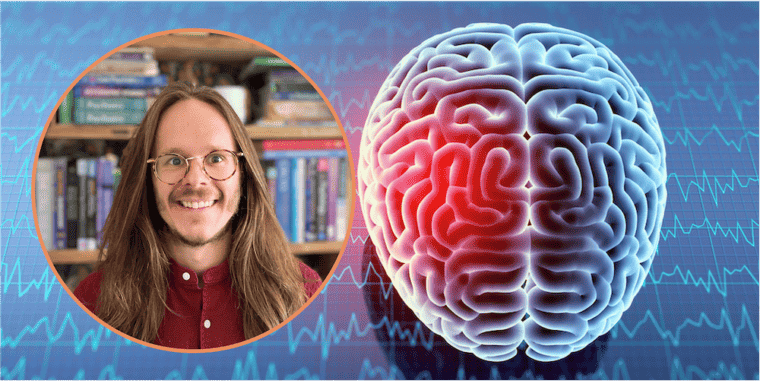
What is Alcohol Related Brain Damage?
Alcohol Related Brain Damage (ARBD) is an umbrella term that reflects the long-term consequences of alcohol consumption on the brain. Whilst the link between alcohol and liver damage or cancer for example, is well recognised, the association between alcohol consumption and long-term cognition, function and behaviour is often overlooked. Causative conditions include Wernicke’s encephalopathy, Korsakoff’s dementia, alcohol related central pontine myelinolysis and Marchia-Fava Bignami disease.
ARBD, or alcohol related cognitive impairment, is occasionally incorrectly associated with antenatal alcohol exposure (resulting in foetal alcohol syndrome) and intoxication related brain injuries, falls or assaults. The latter do not typically reflect the directly cytotoxic (cell damaging) effect that chronic alcohol may have on neuronal cells, the gastrointestinal system lining and nutrient absorption, and liver metabolism. All of which can lead to the following frequently reported long-term impairments (table 1):
| Memory | Function and Behaviour | Emotion and Social |
| Episodic memory impairments Difficulty with attention Problems with cognitive shifting and flexibility | Risk taking, impulsivity Organisation Difficulties with structuring tasks Decision making | Emotional lability Difficulty with social cognitions Difficulty with social perceptions |
Reversibility, Support and Challenges
ARBD is a partially reversible condition with evidence from both neuroimaging and behavioural studies demonstrating a degree of structural and functional reversibility to the impairments observed (Sullivan et al, 2000 , Bartsch et al, 2007). Reductions in, or preferably, abstinence from, alcohol consumption, and treatment of the causative conditions (for example, effective thiamine provision for Wernicke’s encephalopathy) are the mainstay of acute management. However, in order to achieve social reintegration and improve quality of life and independence, complex psycho-social rehabilitation is required (Wilson et al, 2012).
Left unaddressed, individuals face long-term complex care needs that are often unmet. As a result, those living with ARBD experience reduced quality of life, multi-morbidity, premature mortality, and ill-equipped lengthy residential placements.
Currently, individuals with ARBD face various challenges, including stigma (relating to substance misuse, ‘atypical’ behaviours and cognitions) and limited awareness among healthcare professionals (as well as family members and patients themselves). Furthermore, patients living with ARBD experience healthcare provision barriers, for example, severely limited dedicated ARBD clinics or referral pathways, and infrequent acceptance into ‘mainstream’ services such as neurorehabilitation, old age psychiatry or ‘memory services’. When we recently surveyed healthcare professionals, the minority of those who participated responded YES to ‘would your local neurorehabilitation (3 of 14), memory service (5 of 14), geriatrics (1 of 14) or older adult psychiatry (5 of 14) services accept a referral for someone with cognitive impairment on a background of heavy alcohol consumption?’. The number of YES responses fell even further when asked if these services would accept a referral relating to someone with current harmful levels of consumption (1 out of 14 for memory services and 3 out of 14 for older adult psychiatry).
Impact of Covid on Drinking Behaviours and Addiction Services
Increased harmful drinking patterns were observed during the pandemic (IAS The Covid Hangover, 2022). This was associated with the greatest rise in alcohol related deaths since 2001. These changes disproportionally affected those from minority groups and lower socioeconomic backgrounds. Should these changes in alcohol consumption remain, 9900 additional premature deaths can be expected from alcohol related disease. The associated costs of this are estimated as in excess of £1billion (IAS The Covid Hangover, 2022). These projections do not take into consideration the complexity of ARBD as a diagnosis.
During this period, addiction services faced resource and staff diversions (Royal College of Psychiatrists, 2020). Service users with limited access to virtual methods of consultation were suddenly unreachable (Rodda et al, 2022). When combined with alcohol-related memory or functional impairments, the service disparity for a group that were already socially disadvantaged and vulnerable was magnified (Benzano et al, 2021).
Reactive Change is Needed
Recent evidence from France suggests that 38.9% of young onset dementias were alcohol related (Schwarzinger et al, 2018). When applied to the UK population of young-onset dementia, which is estimated at~42,0003 (Alzheimers UK – Young-onset Dementia), the proportion of UK alcohol related early on-set dementia could reach as high as ~16,338. These figures do not take into consideration COVID-19 related changes in alcohol consumption.
A series of practice and service recommendations for ARBD have been outlined (Welsh Government Substance Misuse Treatment Framework for ARBD). Change, starting with awareness raising exercises and training among healthcare professionals is needed to empower the workforce to recognise and support individuals with this condition. In order to prepare NHS services for the increased demand for complex assessment, care and long-term rehabilitation that is approaching, investment in dedicated research, service evaluation and mapping, and cross-sector interdisciplinary practice is needed. This unified approach underpinned by collaborative working between academic and clinical teams, and commissioning bodies, will ensure evidenced based care is delivered to those in need.
If addressed preventatively, there is considerable potential to improve alcohol related harms related to complex cognitive impairments, see social return on financial investments, and improve the well-being of large populations of at-risk individuals.
Written by Dr Darren Quelch, Senior Research Assistant, University of South Wales.
All IAS Blogposts are published with the permission of the author. The views expressed are solely the author’s own and do not necessarily represent the views of the Institute of Alcohol Studies.
Associated Piece: For more information please see an associated article in Future Healthcare Journal; “Alcohol Related Brain Damage: An Umbrella (term) for The Approaching Post-Covid Monsoon”; DOI: (accepted, awaiting proofs)
